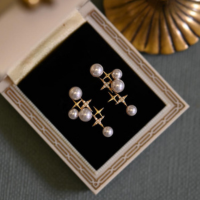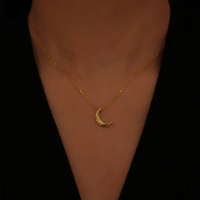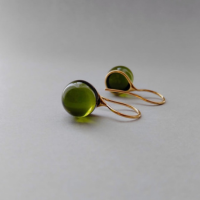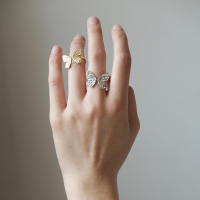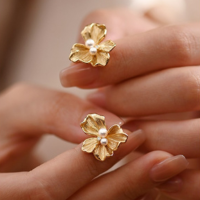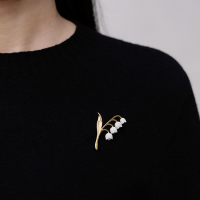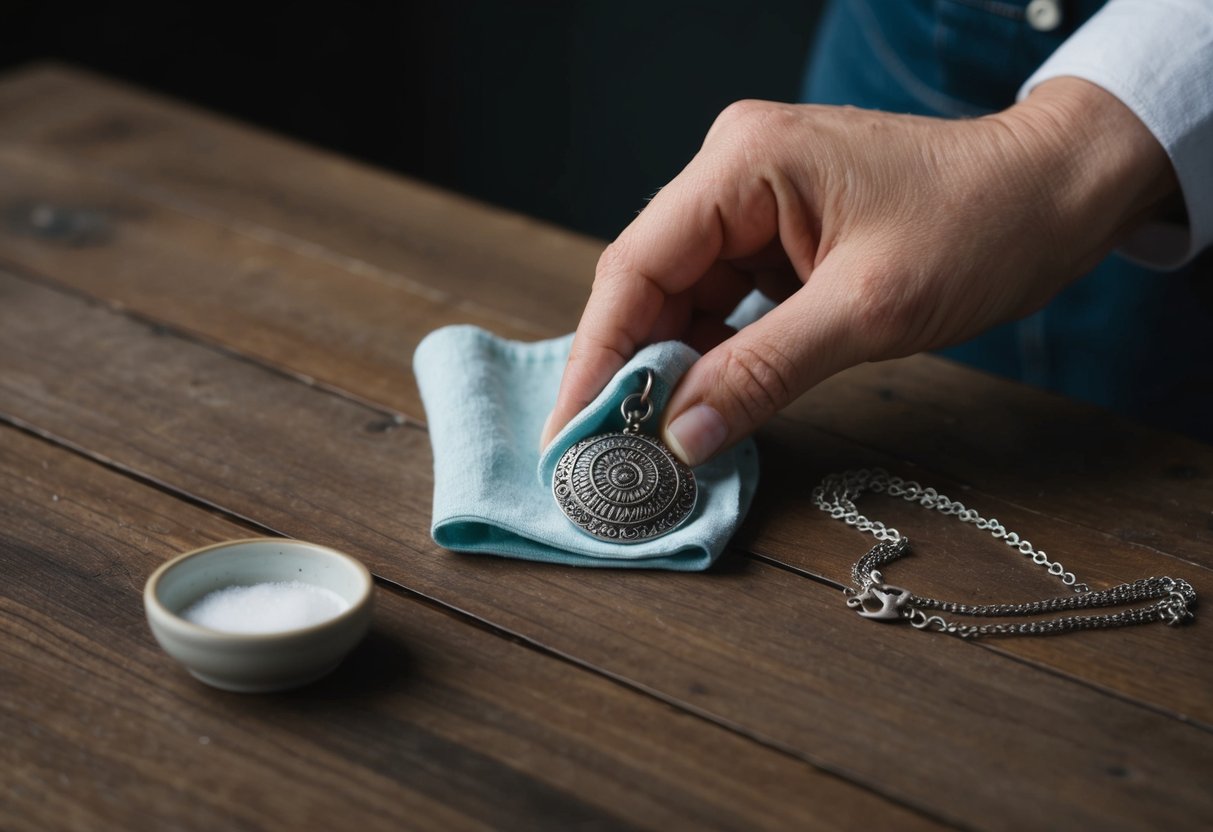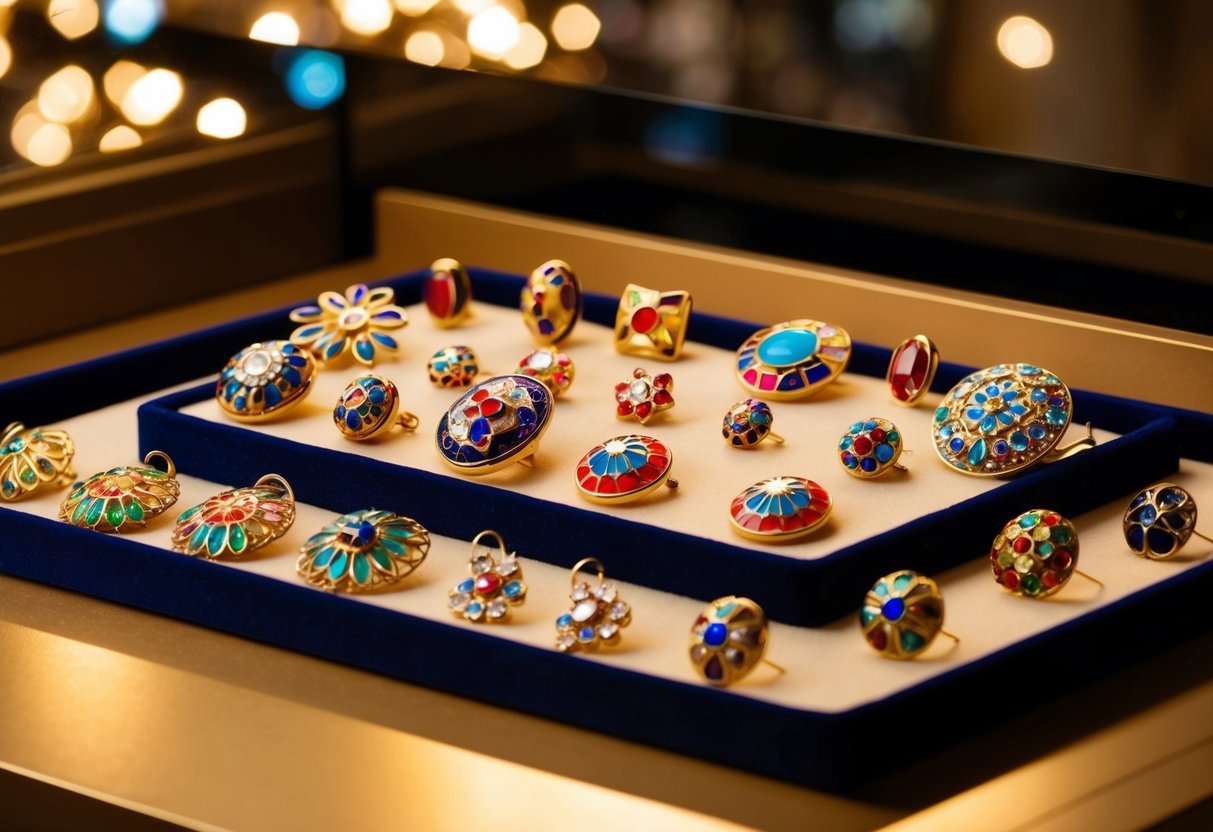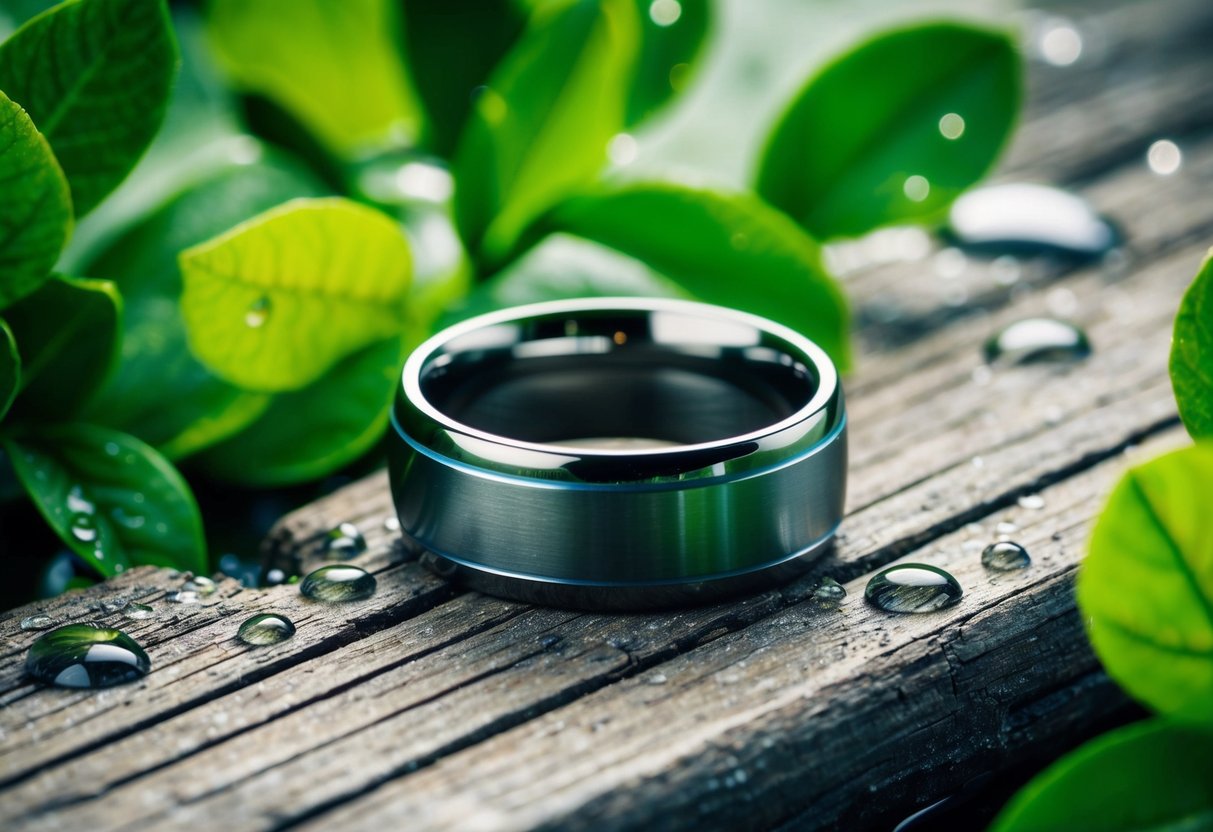
Does Titanium Jewelry Tarnish
Check out our personalized jewelry collections! (kids drawing jewelry, coin jewelry, wire jewelry, fingerprint jewelry, handwriting jewelry, and more)
Titanium jewelry has become quite popular lately, and for good reason. One question we often hear is whether titanium tarnishes. The good news is that titanium is highly resistant to tarnishing, making it a great choice for those who want durable and long-lasting pieces.
You might wonder what makes titanium stand out from other metals. It’s known for being lightweight yet strong, which means it’s comfortable to wear without compromising on toughness. It’s also hypoallergenic, so it's safe for people with sensitive skin.
There are many styles and finishes available, allowing for unique and personalized designs. Our team loves how versatile and easy to care for titanium jewelry is, maintaining its shine with minimal effort.
Key Takeaways
- Titanium jewelry does not tarnish easily.
- It is strong, lightweight, and hypoallergenic.
- Titanium offers many styles and finishes.
The Nature of Titanium in Jewelry
Titanium is a popular choice for jewelry lovers. It’s lightweight, strong, and durable. These qualities make it perfect for everyday wear.
Resilience is one of titanium's standout features. It can resist scratches and doesn’t bend easily. This means our jewelry pieces retain their shape and look great over time.
Another fantastic quality of titanium is that it’s hypoallergenic. For those of us with sensitive skin, this is a key advantage. Wearing titanium usually means fewer allergic reactions compared to other metals.
Our titanium jewelry is available in different finishes and colors. Pure titanium is typically gray, but it can be colored through anodization. This allows for a range of unique and trendy designs.
This metal is also affordable compared to other precious metals like gold or platinum. It gives us a beautiful, high-quality look without breaking the bank.
Titanium's corrosion resistance is impressive, too. This means it can withstand sweat and moisture. We can enjoy our titanium pieces at any time and in any season.
Benefits of Titanium for Jewelry Wearers
Titanium has some great qualities that make it a popular choice for jewelry. It's perfect for people with sensitive skin, known for its strength, and very light to wear. Each benefit makes it stand out as a top pick for jewelry lovers.
Hypoallergenic Properties
Many of us struggle with allergic reactions to certain metals, which can cause discomfort and irritation. Titanium is a fantastic option because it’s hypoallergenic. This means it’s unlikely to cause an allergic reaction, even for those with very sensitive skin.
Because of this, titanium is often recommended for people who can’t wear other metals like nickel. It doesn’t contain alloys that irritate the skin. This allows those with metal allergies to enjoy jewelry comfortably and confidently.
Strength and Durability
When we think of strong materials in jewelry, titanium should be at the top of our list. Titanium is known for its high strength, which means it can withstand everyday wear and tear. It won't scratch easily or become misshapen over time.
This durability makes titanium a top choice for active individuals who want to wear their jewelry without worrying about damage. Its resilience is why titanium is often used in settings for precious stones, ensuring they stay secure.
Lightweight Comfort
Despite its strength, titanium is extremely light. We hardly notice we’re wearing it, making it a comfortable choice. For those of us who wear jewelry all day, this is a huge plus. There's no added weight, even with larger pieces.
Its lightness is especially beneficial for earrings, reducing the risk of stretched earlobes. Titanium's lightweight nature adds to the overall ease, making it great for both casual and formal settings.
Understanding Tarnish Resistance
Titanium jewelry is known for its resistance to tarnish. This makes it a popular choice compared to other metals. Let’s explore how titanium compares to other metals and the protective role of oxide layers.
Comparison With Other Metals
Titanium stands out because it doesn’t tarnish like silver or copper, which can develop a greenish or dark patina over time. Gold and platinum are also tarnish-resistant, but they come at a higher price.
A key factor is titanium's ability to resist the environmental factors like moisture and oxygen that often cause jewelry tarnish. Many metals react by forming sulfides or oxides, changing their appearance. Titanium avoids this, largely maintaining its original shine even with frequent wear.
For those who love wearing jewelry daily, the durability and maintained appearance are big advantages. This quality allows titanium pieces to be versatile options in our wardrobe. Unlike other metals that may require regular cleaning or polishing, titanium's low-maintenance nature is a strong selling point.
The Role of Oxide Layers
Titanium’s tarnish resistance is mainly due to the oxide layer on its surface. When titanium is exposed to oxygen, it forms a thin oxide layer. This layer acts like a shield, protecting the metal underneath from reactions that would cause tarnish.
The oxide layer is both tough and stable. It's clear, so it doesn’t alter the appearance of the jewelry. This natural process keeps titanium looking new, even with daily use.
In fact, the oxide layer not only protects but can also be used to create colorful jewelry. By adjusting thickness, we can produce vibrant hues without dyes or paints, adding unique options for customization. The reliable and natural oxidation process truly sets titanium apart in the jewelry market.
Maintaining Your Titanium Jewelry
Titanium jewelry is highly resistant to tarnish, but it still requires some care to keep it looking its best. Regular cleaning, avoiding scratches, and proper storage are essential for maintaining its quality.
Regular Cleaning Tips
Caring for titanium jewelry is simple. Use a soft cloth dipped in mild soapy water to gently clean your pieces. Avoid harsh chemicals that might damage the surface.
After cleaning, rinse the jewelry thoroughly with warm water and pat dry with a clean towel. We should do this regularly to prevent build-up of oils and dirt that can dull the shine. For extra shine, polishing with a jewelry cloth made for titanium can be helpful.
Avoiding Scratches and Damage
Though titanium is durable, a little caution can keep it flawless. We should remove jewelry before activities like gardening or working with tools to prevent scratches.
Store pieces separately, ideally in soft cloth pouches or individual compartments in a jewelry box. This separation helps avoid contact with other metals or abrasive surfaces that may cause damage. Likewise, keeping it away from chlorine and bleach is a smart move.
Long-Term Storage Solutions
When storing titanium jewelry for extended periods, conditions matter. A cool, dry place is best to avoid moisture or heat that might cause tarnishing or damage.
Use small silica gel packets in jewelry boxes to absorb humidity. Make sure we occasionally check the jewelry, even when stored, to ensure it remains in top condition. This approach ensures our titanium pieces remain a beautiful part of our collection for years.
Styles and Finishes in Titanium Jewelry
The world of titanium jewelry offers diverse styles and finishes. From the glossy appeal of polished surfaces to the understated elegance of matte, there's a choice for everyone. Additionally, colored titanium pieces add a unique flair to any collection.
Polished Versus Matte Surfaces
When we talk about titanium jewelry, the finish is key. Polished titanium shines bright, reflecting light beautifully. It's great for those who love their jewelry with a sleek, mirror-like finish. Polished pieces are often chosen for formal occasions, adding a touch of elegance.
In contrast, matte titanium offers a subtle, understated look. This finish doesn’t shine as much but has its own charm. The smooth, non-reflective surface provides a more relaxed and contemporary feel. Matte finishes are popular for casual wear and those who appreciate a simpler aesthetic. Both finishes resist tarnishing, making them durable choices.
Colored Titanium Options
Colored titanium is where things get creative. We can find titanium jewelry in a range of hues including blue, green, and even purple. This is achieved through an anodization process, which forms a thin oxide layer on the metal.
These colors don’t fade easily, offering a lasting vibrant look. Whether it's a bold blue ring or a soft pink bracelet, each piece stands out. The colors add personality, making them perfect for anyone wanting to make a statement. Plus, the colored titanium retains the same strength and tarnish resistance, so it’s a stunning, practical choice.
Customizing Your Titanium Pieces
Titanium jewelry is perfect for customization. We can choose from a variety of finishes. There's polished, matte, and even textured. Each finish gives its own unique look.
Engraving is another popular choice. We can engrave names, dates, or special messages. Titanium is a strong metal, so these engravings last a long time.
We also have the option to add gems or stones. Imagine a titanium ring with a sparkling gemstone. It looks stunning and feels unique.
Anodizing is a special coloring process for titanium. This process allows us to add vibrant hues like blue, purple, or green to our pieces.
For those who prefer something unique, mixed metals can be used. Combining titanium with gold or silver creates interesting contrasts and highlights.
Custom shapes and designs are also possible. We can create titanium pieces in specific shapes or add personal designs, making them one-of-a-kind.
These customization options let us express our style in ways that are both personal and meaningful.
Where to Shop for Quality Titanium Jewelry
When searching for titanium jewelry, we want to find pieces that are both stylish and durable. Online stores are a great place to start. Websites like Amazon, Etsy, and eBay offer a wide variety of designs and styles.
Local jewelry stores can also be a treasure trove for finding titanium pieces. Specialty shops often carry unique and custom designs. It's worth visiting these places to see the jewelry in person.
For those of us who love custom pieces, we can explore shops that specialize in personalized jewelry. Websites like Brilliant Earth or Blue Nile offer customization options where we can add personal touches to our selected pieces.
Here’s a quick list of popular places:
- Amazon: Wide selection and customer reviews.
- Etsy: Handmade and unique options.
- Blue Nile: Customizable choices.
- Local Jewelers: Personal service and expert advice.
By exploring these sources, we can find quality titanium jewelry that matches our style and preference. Whether we prefer shopping online or visiting a local jeweler, there are plenty of options for finding the perfect piece.
Frequently Asked Questions
Titanium jewelry is popular for its durability and minimal maintenance. Let's explore its behavior regarding shine, exposure to water, and potential effects on skin.
How long will titanium jewelry last without tarnishing?
Titanium jewelry can last a lifetime without tarnishing. Its natural resistance to corrosion ensures it keeps looking good for years.
Is it safe to wear titanium jewelry in the shower without risking tarnish?
Yes, titanium is resistant to water damage. Wearing it in the shower should not cause any tarnish or harm.
Can titanium jewelry cause skin discoloration, such as turning your finger green?
Titanium jewelry generally does not cause skin discoloration. It's hypoallergenic and safe for most people to wear.
What are some of the known disadvantages of titanium jewelry for consumers?
While very durable, titanium can be challenging to resize. It may not have as wide a variety of designs as softer metals.
Will titanium jewelry maintain its shine and color when exposed to water?
Titanium can keep its shine when exposed to water. It's resistant to rust and fading, maintaining its appearance over time.
Does the quality of titanium affect its susceptibility to tarnishing over time?
Higher-quality titanium is more resistant to tarnish. Cheaper alloys might not offer the same durability, so investing in quality matters.

